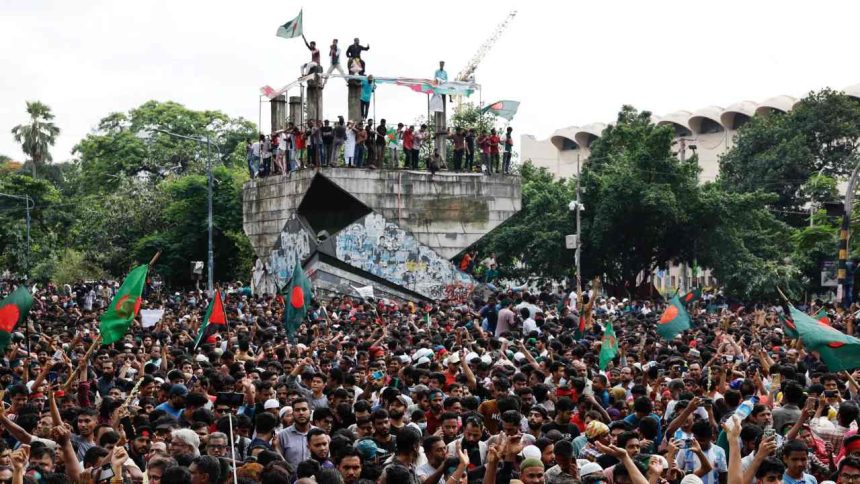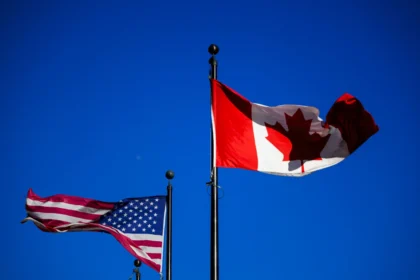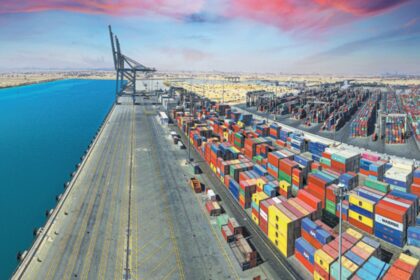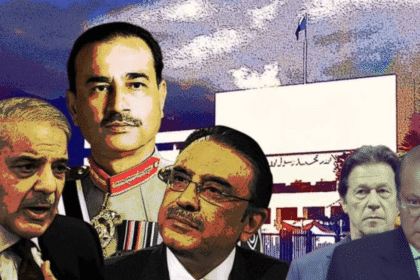Normalcy is expected to return to Bangladesh after a flurry of events in recent days, but many believe it to be just a mirage, as the South Asian nation has a long path to tread before it could claim stability and peace.
The resignation of Sheikh Hasina as prime minister and her abrupt departure to India has set off a chain reaction, leaving the nation in both chaos and celebration. President Mohammed Shahabuddin dissolved parliament on Tuesday and appointed Nobel Peace Prize laureate Muhammad Yunus as the head of an interim set-up later in the evening.
Gen Z and General ‘Z’
The week began with student protests against a controversial job quota system for government jobs reached a boiling point after weeks of escalation, forcing Hasina to step down and flee. She had earlier tried to curtail the demonstrations by using force, a decision that resulted in the deaths of more than 300 people and left thousands injured.
According to latest reports, Bangladesh’s army chief Gen Waker-uz-Zaman, who announced that Hasina had resigned and that he would be taking over the country’s affairs “temporarily”, earlier decided not to enforce a complete lockdown in the face of escalating violence. General Zaman also informed Hasina during an online meeting on Sunday that the army could no longer support her, leaving her vulnerable. The message from the army was clear, that they would not open fire on civilians to maintain her rule. This refusal raised a number of questions, the foremost being “whether the military’s loyalties shifted” and “whether it wants to have an influence in the country’s politics”, as the president released opposition leader Khaleda Zia – who had been under house arrest since 2018 on the charges of corruption – right after the “civilian coup”. It could also be viewed as the institution’s desire to have a more democratic and civilian-led political processes in the future, but its role in the political arena remains a wildcard, which could be used at will. However, the decision of not opening fire on civilians indeed shows the army’s sensitivity to public sentiment. By avoiding its participation in the violence, the army has not only ensured that there would be no future unrest but also evaded a potential loss of credibility among the public.
New sheriff in town
Interim premier Yunus, who is in Paris for a medical procedure, will most likely return to Dhaka on Thursday. Talking to a newspaper, he mentioned two things he would primarily focus on: restoring trust in the government and preparing for fresh elections. He said that the country needed calm as well as a roadmap to new elections, which means his government has a huge task ahead.
Earlier, President Shahabuddin had also stressed the need for finalizing the interim government as quickly as possible. On the other hand, student leaders have submitted a list of recommended members for the interim set-up, which includes the names of civil society as well as their own representatives.
Nahid Islam, one of the protest leaders, said the members of the interim government need to be finalized by Wednesday, adding that stability needed to be restored immediately. Hailing Hasina’s ouster as a victory to the protesting students, he said they had been fighting for fair opportunities.
Ins and outs
On the other hand, fresh protests erupted in Dhaka when officials of the central bank forced four of their deputy governors to resign over corruption charges. However, there was no official statement from the Bangladesh Bank on the latest developments. Separately, the Bangladesh Nationalist Party (BNP) took out a rally in Dhaka to celebrate the release of their leader.
As the dust settles on the chaos, Bangladeshis are left to deal with a mix of emotions: relief that the crisis has passed, hope for a brighter future, and anxiety about the road ahead. Yunus has called for a collective effort to rebuild the nation, and urged the leaders-to-be to roll up their sleeves to tackle the challenges that lie ahead.
While the recent developments may have brought a sense of calm, the main issues that led to the crisis would need the new government’s immediate attention. However, one thing is clear that the recent protests were just a symptom of deeper frustrations.
The world has seen people complaining about systemic corruption, economic inequality and lack of opportunities for a long time, so a positive change would be something unusual for them. A majority of the people believes their rulers have failed them in the past, so it would not be easy for the interim government, or even the new elected government, to restore public trust in the system. Khaleda Zia’s release has also made the situation complex, as her presence could both stabilize and destabilize the political environment.
Another point of focus would be the economic challenges, especially when the recent chaos has disrupted businesses and investor confidence. It is yet to be seen how the interim government decides to create jobs, bring down inflation and attract foreign investment. Whether or not the army decides to play a role in introducing economic reforms will also be an interesting decision.
Since the world’s eyes will be on Bangladesh in the days ahead, the interim government would also have to address social issues like human rights abuses as well as restrictions on freedom of speech, and ensure that abuses of the past do not continue under the new administration.
As for the fresh elections, setting up an electoral system that is transparent and trusted by all parties will also be a difficult task because political factions, especially those favoring Hasina, might attempt to undermine the process, which would lead to further instability. Moreover, since it was the people’s power that brought about an unthinkable change in the country, the emergence of a new political party could not be ruled out, especially one consisting of protest leaders.
















